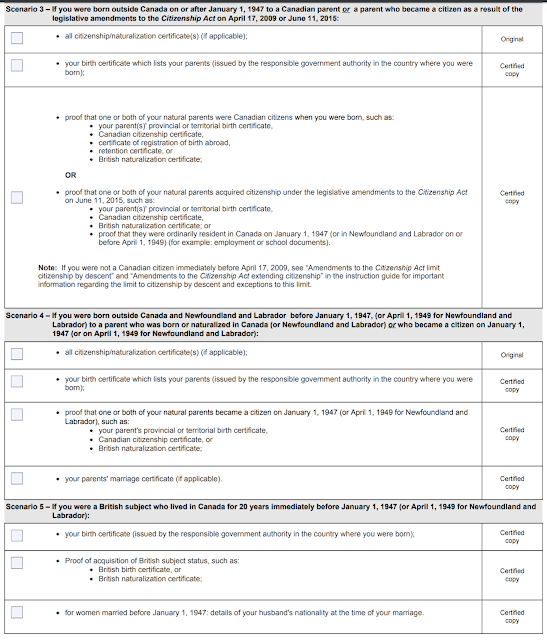It would be better for the world as a whole for those credits not to be there, but New Zealand's being in the scheme and accepting them was hardly all for the bad. Rather, it was a commitment mechanism. As soon as the rest of the world took global warming seriously and ditched the dodgy credits, New Zealand would be part of a more serious global carbon trading system - but not until that happened.
New Zealand's decoupled from the system
Nature put up a new measure of the country-level social cost of carbon. It gives a measure of the experienced costs in each country, over different time horizons and under different scenarios, of a ton of carbon dioxide emissions from anywhere.
Assuming the numbers are right, a purely self-interested country with no expectation of international coordination would set a local carbon price equal to the experienced cost of carbon within its own borders. A purely altruistic country would set a local price of carbon emissions equal to the global cost of emissions - the sum of costs across all countries.
The fun part is that the authors also put up a data explorer letting you play with it.
Under the default short-run scenario, the social cost of carbon in New Zealand is USD$0.002 per ton; in the US, it's $47.80; in China it's $24.07.
Flipping to the long run, costs in New Zealand are $0.66, while they're $213.70 in the US and $80.08 in China.
Under the most pessimistic scenario for New Zealand*, the median cost estimate here is $1.67, in the US it's $165.69, in China it's $227.39 and $221.35 in India.
The countries that emit the most and have the strongest potential to reduce emissions also have the strongest incentive to do so because they experience the highest local costs of carbon dioxide emissions, whether those emissions are generated domestically or internationally. Again - even a purely self-interested country should want to have a local price of carbon matching the local social cost of carbon.
New Zealand should move in line with everyone else in mitigating greenhouse gas emissions, but moving faster than everyone else seems a bit odd under those figures. Every ton of carbon we fail to emit saves New Zealand no more than $2 in costs, while saving America from about $50 to over $200.
It's a bit like spending a pile of money on gardeners to clean up your own lawn so that you don't spread dandelion seeds over to the neighbors, while the neighbors' lawns are nothing but weeds with seeds flying everywhere. But hey! You did the right thing in making sure that, if everyone spent as much on gardening as you did, the neighbourhood wouldn't be taken over by weeds.
Meanwhile, the Productivity Commission's report on all this... I'm not used to being disappointed by Prod Comm reports. This one was disappointing.
The terms of reference set by the government asked the Commission to figure out the best way of achieving net zero carbon emissions by 2050. They weren't allowed to ask whether that made sense, or whether it made sense only if the rest of the world were also doing their part.
The terms of reference weren't their fault. But all the marketing of it afterwards had an uncomfortably heavy "Hey, here are the somethings that we identified; we must do them." The terms of reference were conditional: if you want X, do Y. The marketing dropped the conditional, and didn't bother with any cost-benefit assessment.
Net zero emissions could make sense - if everyone else is game. Since global warming costs in China and the US are going to be highest, we should be expecting them to take the lead in wanting robust international trading systems. We should be helping them in achieving that, but 2050-or-bust, on our own, seems a bad idea.
And this part is just nonsensical. I don't know who was doing QA here, but they must have fallen asleep.
It is also possible that other policy measures may need to change to fully capture the benefits of a circular economy. For example, the Sustainable Business Network (2018) suggests that changing the Goods and Services Tax (GST) structure for circular products may act as a powerful driver encouraging this approach. A similar model is currently being considered by the European Commission (2018b).The report muses about breaking the GST in order to achieve some circular economy ideal, but completely ignores the potential of GE grasses in reducing pastoral emissions. The credulity around the circular economy work was a bit concerning.
Mike Reddell hit the ProdComm report earlier this month. I expect that his concerns about immigration and the carbon targets could be handled by simply population-adjusting the targets; the rest of it is more worrying.
I hadn't posted on the report since Reddell covered it well. But I hadn't caught the "let's break the GST for the sake of the circular economy" bit in the 600 page report. It just felt more depressing than all the rest.
It might wind up being worthwhile going through the circular economy stuff more thoroughly sometime. It's somewhere between wrong and not-even-wrong. It starts from a moral presumption that it's wrong to throw anything away and that there's almost no cost that's too high in reusing things that are expensive to re-use or re-purpose. It seems a great way of breaking parts of the economy.
* I ran a lot of permutations but not all possible ones; maybe you can find a worse one.






